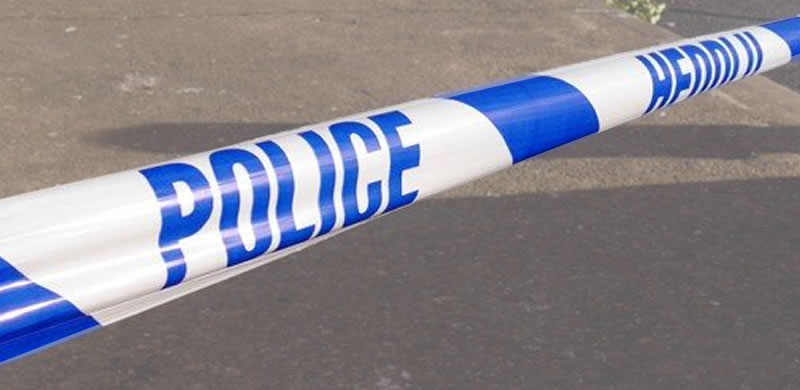Vetting failures have allowed ‘wrong people’ to join police forces

Police vetting standards are not high enough and it is too easy for the wrong people to both join and stay in the police, a new report has found.
The report from His Majesty’s Inspectorate of Constabulary and Fire & Rescue Services was ordered after the kidnap, rape and murder of Sarah Everard in March 2021 by a serving Metropolitan police officer, Wayne Couzens.
HMICFRS looked at eight forces including South Wales, it carried out an online survey in which 11,277 police officers, staff and volunteers responded to.
Inspectors examined 725 vetting files, considered 264 complaint and misconduct investigations.
The watchdog found ‘too many cases’ where people should not have been allowed to join the police, including officers with criminal records or links to organised crime.
It also found cases where evidence that a prospective officer may present a risk to the public was ignored.
The watchdog found examples of police officers transferring between forces despite a history of concerning intelligence, complaints or misconduct allegations.
Inspectors examined 725 vetting files, considered 264 complaint and misconduct investigations.
They interviewed 42 officers – all except one were women. Their accounts included sensitive detail, some of which amounted to allegations of criminal offences.
These included female officers and staff alleging sexual assault by male colleagues in the workplace and at social events.
HMICFRS said there were incidents which should have been assessed as gross misconduct that were assessed as misconduct only, or not treated as misconduct at all, they included:
- senior male officers pursuing women in lower ranks for sex, including via the force email system;
- viewing pornography at work – for example, male officers (including supervisors) viewing pornography on suspects’ phones (not as part of investigations) and inviting other officers to view the images on screen;
- sending pornography to female colleagues’ phones;
- inappropriate sexual comments by male officers, including comments about a victim’s breasts, comments about vulnerable sex workers who were victims of crime, and many other disparaging and insulting comments about female victims in general;
- at work-related social events, a senior male officer pestering female colleagues for sex. He sought to take advantage of those who he could see had clearly been drinking alcohol;
- male officers making a point of stopping cars driven by women they regard as pretty, a practice they referred to as “booty patrol”; and
- male officers, including supervisors, making sexually explicit comments about female members of the public.
The inspectorate concluded that a culture of misogyny, sexism and predatory behaviour towards female police officers and staff and members of the public still exists and is even prevalent in many forces.
HMICFRS has made 43 recommendations which include:
- updating minimum standards for pre-employment checks;
- establishing better processes for managing risks relating to vetting decisions, corruption investigations and information security;
- improving the quality and consistency of vetting decision-making, and improving the recording of the rationale for some decisions;
- extending the scope of the law on police complaint and misconduct procedures;
- strengthening guidance for forces on vetting processes and relationships and behaviours in the workplace;
- understanding and defining what constitutes misogynistic and predatory behaviour;
- improving how the police collect corruption-related intelligence; and
- improving how the police assess and investigate allegations of misconduct.
His Majesty’s Inspector of Constabulary Matt Parr said:
“It is too easy for the wrong people to both join and stay in the police. If the police are to rebuild public trust and protect their own female officers and staff, vetting must be much more rigorous and sexual misconduct taken more seriously.
“We found evidence of poor decision-making in police vetting, inconsistent handling of misconduct cases and a lack of effective monitoring of officers’ IT use, all of which can lead to devastating consequences. Yet despite repeated warnings – including several from us – not enough has been done to improve standards and stamp out misogyny and predatory behaviour in policing.
“The police must do more to prevent unsuitable people from joining in the first place, identify any misconduct within the force, and quickly dismiss officers and staff if they are not fit to serve the public.
“Given the risks involved with recruiting officers at the scale and speed required by the uplift programme, it is essential that police leaders act now on our recommendations. Our report highlights that they simply cannot afford to wait any longer.”
National Police Chiefs’ Council Chair, Martin Hewitt, said:
“His Majesty’s Inspectorate of Constabulary and Fire and Rescue Services (HMICFRS) inspection agreed with 90 per cent of the vetting decisions made by police forces and found 80 per cent of misconduct investigations were effective. ”
“But they also identified some flawed processes and questionable or wrong decisions, which allow the wrong people to enter or stay in policing and do harm to their colleagues or the public.”
“Chief constables, supported by national bodies, will act on these recommendations and put the problems right because we cannot risk predatory or discriminatory individuals slipping through the net because of flawed processes and decision-making.”
“The confidence of the public and our staff is dependent on us fixing these problems with urgency, fully and for the long term. Police chiefs are determined to do that.”
“A number of changes and actions are already underway to improve standards in vetting, misconduct and counter-corruption and ensure those standards are consistently followed.”
“These recommendations will be addressed in full and included in ongoing activity where appropriate.”
Spotted something? Got a story? Email: [email protected]
Latest News
